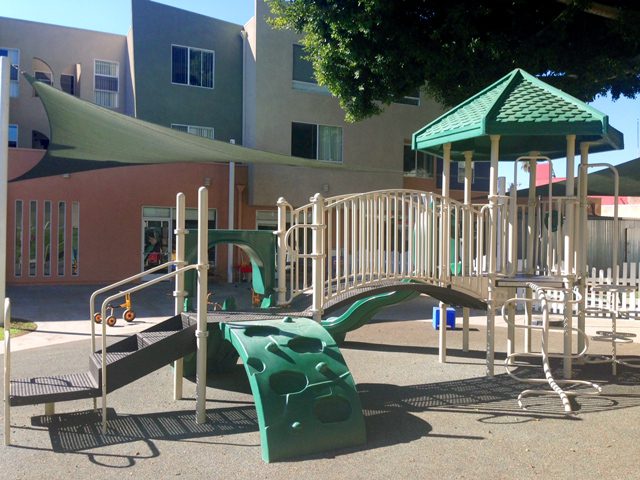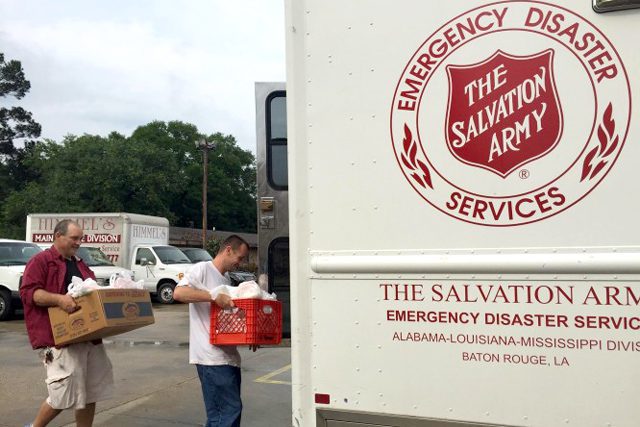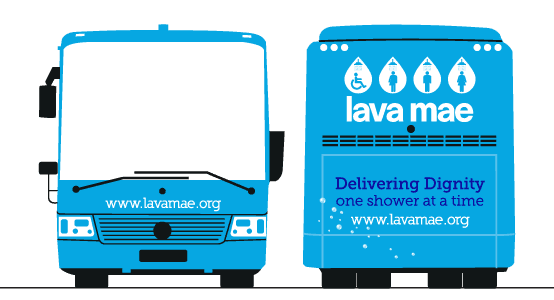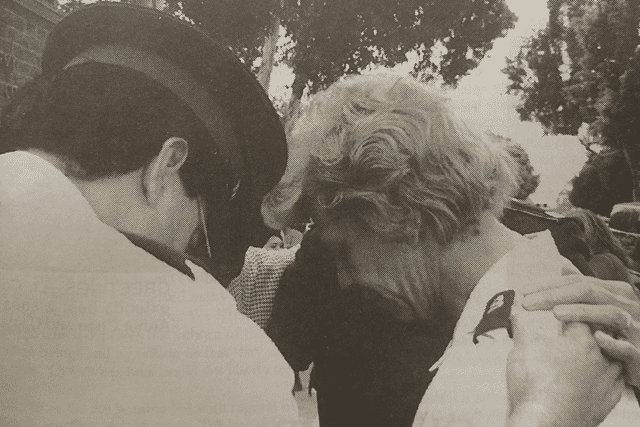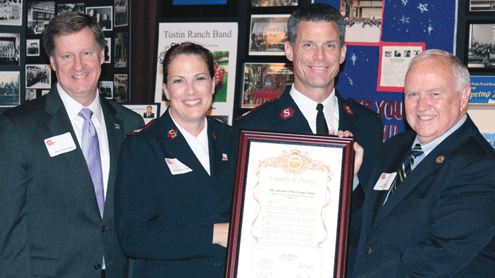The Salvation Army Alegria provides a clean, safe environment for homeless families with special needs in the heart of Los Angeles.
By Chadwick Phillips –
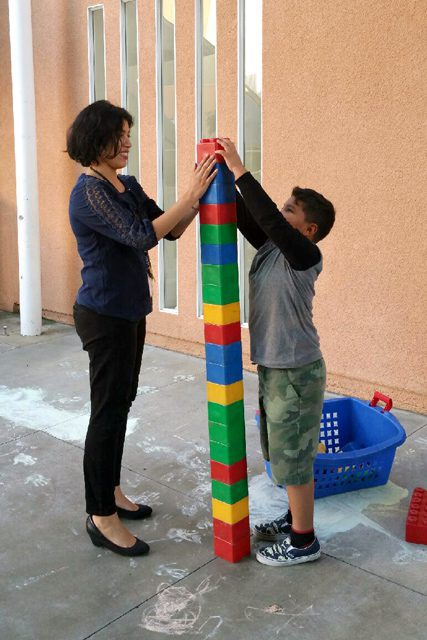 The Salvation Army Alegria, located in the heart of Los Angeles, opened its doors in 2001 and caters to homeless families with special needs. It helps families survive, but also gives them the resources to live dignified, hopeful lives in a village-style community with 16 licensed residential care apartments and 28 townhomes for permanent or long-term housing. The facility also contains a licensed child development center on-site that offers after-school programming for children and youth.
The Salvation Army Alegria, located in the heart of Los Angeles, opened its doors in 2001 and caters to homeless families with special needs. It helps families survive, but also gives them the resources to live dignified, hopeful lives in a village-style community with 16 licensed residential care apartments and 28 townhomes for permanent or long-term housing. The facility also contains a licensed child development center on-site that offers after-school programming for children and youth.
Ana Aguirre, director of Alegria and the Zahn Emergency Family Shelter, began her work with The Salvation Army in 1997.
“When I was younger, my mother, six siblings, and myself were homeless at one time and I really counted on the services that The Salvation Army provided,” Aguirre said. “The work that The Salvation Army does and the people they help is really what inspired me to want to work with them.”
After becoming a certified nursing assistant and specialist in alcoholism and other drug addiction recovery, Aguirre was appointed as the program director of Zahn Emergency Family Shelter in 2006. Under her guidance, the program is now viewed as a benchmark family shelter in Los Angeles County. In 2014, Aguirre was asked to take on the same role at Alegria. She is currently working toward a degree in sociology.
“Alegria is the Spanish word for joy,” Aguirre said. “At Alegria we house and care for individuals and families that are infected with the HIV and AIDS virus. Our goal is to keep families together in health and in spirit without the stigma attached to homelessness and health conditions.”
Residents have access to registered nurses, case managers and masters of social work experts that provide health care services including counseling, substance abuse and sobriety services, along with HIV and AIDS education. Professionals also provide a multitude of life services, including literacy and computer classes, employment assistance, legal clinics, placement into transitional or permanent housing, and recreational and social activities.
“A large majority of our population come to Alegria with issues related to substance abuse,” Aguirre said. “A lot of our HIV clients became infected because of their substance abuse. A lot of them are homeless because they couldn’t maintain employment due to their substance abuse. So, one of our goals is to help keep them clean and find them employment.”
According to the National Institute on Drug Abuse, “drug abuse and addiction have been inextricably linked with HIV/AIDS since the beginning of the epidemic. The link has to do with heightened risk—both of contracting and transmitting HIV and of worsening its consequences.” Drug use through needle sharing has the ability to transmit HIV and AIDS. Furthermore, drug abuse and addiction can worsen the symptoms caused by HIV.
In order to qualify to live at Alegria, one must maintain a Karnofsky score between 50 and 70 percent, meaning that they require frequent help and medical care based on a performance index of physical ability. To continue their stay at Alegria, residents are required to attend scheduled doctor’s appointments and meet with case managers on a weekly or as-needed basis. Residents must also be taking their prescribed medication, be a functional member of society, and either be employed, looking for employment, or enrolled in school. Furthermore, those who wish to live at Alegria’s permanent housing facility must earn at least double the amount of their monthly rent and have at least one family member who is HIV positive or AIDS diagnosed.
“Our mission is to help,” Aguirre said. “Our clients are very ill and in need and we want to help stabilize them and help them become sustainable on their own.”
Alegria’s main objective is to assist in providing a stable, nurturing, and safe environment for homeless families. This includes assisting families, including children, with any medical and issues they may be struggling with. As a result of this holistic approach, Alegria hopes that families will thrive and be able to contribute to their community.
Maureen Arnold is a resident at Alegria infected with HIV. She and her two daughters live at the facility full time.
“I looked through the paper and found Alegria. So, I contacted them, had an interview, and they recommended that I stay here,” Arnold said. “Alegria has helped me be stable with my saving, so that when I get out of here I can have a better foundation for my daughters and me.”
Arnold says that the support groups at Alegria are what help her the most.
“There is a lot of support and there are a lot of groups here and I just really like it. It helps me feel better and not think about what is happening and my current situation,” Arnold said. “The support groups here make it easier for us every day. It’s like a family and they treat everybody the same. Without them and without The Salvation Army, I don’t know where I’d be.”
“There were a lot of people that, at first, were against us being here,” Aguirre said. “I’ve been meeting with different community leaders lately and they are liking what we are doing here and what we provide to the community. They see that we are a positive enforcer and not just a homeless shelter and they want to become involved with Alegria.”
According to Aguirre, many of Alegria’s clients are willing to put in the effort to better themselves and their lives. As a result, they put themselves in positions to be able to look toward future plans including job training, vocational studies, and higher education goals.
“Good health and well-being are other primary factors,” Aguirre said.
Those who are able to find treatment for themselves and experience an increase in health status tend to affect the community positively by less frequent hospitalization and emergency room visits.
“At Alegria, we give those addressing medical issues the ability to take care of themselves and are therefore not a burden to the community,” said Aguirre. “We help our clients become self sufficient through maintaining affordable, supportive housing. By actively looking for employment and taking care of family members, our clients are less likely to become incarcerated.”
Aguirre hopes that Alegria will continue to impact the community in a positive way.
“At Alegria we help stabilize our clients lives. They come to us confused, not knowing, afraid, and scared because a lot of the times their own family members don’t accept them,” said Aguirre. “So, we help them accept themselves. We help them accept the help we want to provide to them and therefore they no longer feel the stigma attached to their illness.”











